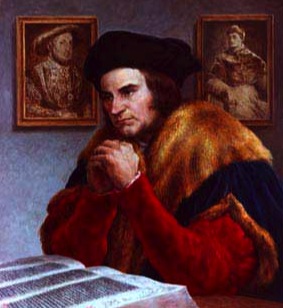A Brief Colonial History Of Ceylon(SriLanka)
Sri Lanka: One Island Two Nations
A Brief Colonial History Of Ceylon(SriLanka)
Sri Lanka: One Island Two Nations
(Full Story)
Search This Blog
Back to 500BC.
==========================
Thiranjala Weerasinghe sj.- One Island Two Nations
?????????????????????????????????????????????????Monday, January 30, 2017
Thomas More’s Design For A Communist Society: Part VII

By Laksiri Fernando –January 29, 2017
Establishing equality in society, even within a broad spectrum, has
always been a theoretical enigma since Plato’s time or even before. Eric
Fromm called this effort ‘standardization of man.’ For this purpose,
More in the early 16th century invoked a kind of a utilitarian theory based on pleasure in his Utopia,
but ‘pleasure in moderation.’ He derived his equality principle also
from natural justice and argued ‘no man should seek his own pleasure to
prejudice others.’
More’s ideas have a contemporary relevance, whatever the intermittent
weaknesses, as Oxfam has revealed that eight billionaires in the world
today have more wealth than half of the world’s population. The effort
to build reasonable social equality in Sri Lanka in contemporary times
came with the philosophy of Sama Samaja (equal society) which is now almost abandoned for political expediency.
With the above few introductory words, we turn to know what More exactly said on this matter by publishing Chapter 5 of ‘Thomas More’s Socialist Utopia and Ceylon (Sri Lanka)’ by Laksiri Fernando. This is part of a series to celebrate the five hundred years of Thomas More’s ‘Utopia’ (December 1516) courtesy of Colombo Telegraph and Sri Lanka Guardian. The publication link to the original is https://www.createspace.com/4688110
A COMMUNIST SOCIETY
“Just as modern mass production requires the standardization of
commodities, so the social process requires standardization of man, and
this standardization is call equality.” ~ Erich Fromm[1]
Utopian society is based on a certain philosophy; justice and equality
being the main corner stones. Nonetheless it is not dogmatic but
pragmatic. According to More, there are various arguments on moral
issues among the Utopians that are freely discoursed. The society
however is based on a general agreement on what they have achieved (or
could achieve) concerning ‘on what the happiness of man consists of.’
According to More, “They inquire into the nature of virtue and
pleasure; but their chief dispute is concerning the happiness of a man,
and wherein it consists? Whether in some one thing, or in a great many?
They seem, indeed, more inclinable to that opinion that places, if not
the whole, yet the chief part of a man’s happiness in pleasure.”
“Yet they do not place happiness in all sorts of pleasures, but only in those that in themselves are good and honest.”
Pleasure in moderation is the concept. There is no clear social contract
theory pronounced in More’s social philosophy like what advocated by
Thomas Hobbes or John Locke later in England. But society is seen as a
natural evolution of man’s effort to pursue happiness which leads to
different forms of societies. Utopia is the ideal form of society which
is based on a moral and an ethical foundation which is just and equal to
every member of society. For this purpose “they make use of arguments
even from religion, notwithstanding its severity and roughness” but
their main disposition is to be based on “natural reason, since without
that they reckon that all our inquiries after happiness must be bit
conjectural and defective.” “They also observe that in order to our
supporting the pleasure of life, nature inclines us to enter into
society,” More argues.
Utopians derive their equality principle (or Sama Samaja) from
natural justice “for there is no man so much raised above the rest of
mankind.” No one can be the favourite of the nature, More argued. The
nature places all on a common level. “Upon this they infer that no man
ought to seek his own conveniences so eagerly as to prejudice others.”


